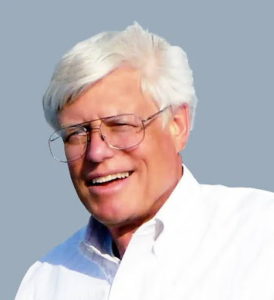Central Iowa Water Works names executive director, takes final steps toward January launch

Michael Crumb Oct 17, 2024 | 10:39 am
4 min read time
1,039 wordsAll Latest News, Energy, Key Leadership Changes
The Central Iowa Water Works (CIWW) board of trustees announced this week that it has hired Tami Madsen to be the organization’s executive director beginning Nov. 18.
Madsen’s hiring is the latest step in the regional water organization’s move to become operational starting Jan. 1, 2025, a culmination of years of work to regionalize the drinking water system, which leaders say is necessary to become more efficient and to meet the growing demands of Central Iowa.
Madsen was one of 45 applicants — and five finalists — for the position. She holds a master’s degree in hydrology from the University of Oklahoma and a master’s degree in business administration from the University of Texas in Tyler, Texas.
She comes to Central Iowa Water Works from the Western Area Water Supply Authority, a comparable regional wholesale water utility in Williston, N.D., where she has served as executive director for the past five years.
In a news release, Jody Smith, chairman of the Central Iowa Water Works board of trustees, said Madsen’s experience and skills set her apart from other applicants.
“Skilled in management and operations, Tami has spent the past five years leading an established wholesale water utility in North Dakota,” which is similar in structure and purpose to Central Iowa Water Works, Smith said. “As a result of that experience, she is well acquainted with financial management, water plant operations, resource and facility planning and strategic growth considerations required as we build the regional water authority in Central Iowa.”
Her experience includes working with member entities, stakeholders, state lawmakers and the North Dakota Department of Water Resources on a variety of water topics, including funding and public policy.
“Even as a relatively new water authority, you can see that the founders of Central Iowa Water
Works have shown vision and initiative in their collaboration on water production, governance and cost-sharing,” Madsen said in the release.

Her selection comes after the 28E/F sharing agreement between member organizations was filed with the Iowa Secretary of State’s Office in April. The board met for the first time in April, said Bill Smith, who was named interim executive director at the time to help the board navigate the final steps before it begins operation in January.
Discussions about developing a regional drinking water authority have been ongoing for more than a decade, becoming more serious and productive among the three board-governed water utilities — West Des Moines, Des Moines and Urbandale — in 2020.
Leaders of those utilities have said a regional system would provide the tools and opportunities to support continued economic growth in the region.
Central Iowa Water Works would not replace or eliminate water boards or departments in member communities. Each community would supply water it purchases from CIWW to its individual customers, set its own water rates, operate and maintain its local distribution system (mains and water towers), and provide its own customer service.
Each founding member also has a seat on the CIWW governing board. Founding members are Ankeny, Clive, Des Moines Water Works, Grimes, Johnston, Norwalk, Polk City, Urbandale Water Utility, Warren Water District, Waukee, West Des Moines Water Works and Xenia Rural Water District. Des Moines Water Works also represents its seven total service customers, which include the communities of Pleasant Hill and Windsor Heights.
Smith told the Business Record that several actions still need to be completed before CIWW becomes operational.
Among the items are approving water rates at the board’s meeting on Oct. 23. The budget is prepared and will be presented to the board for approval at the board’s Nov. 20 meeting. CIWW attorneys have been working on asset transfer documents and debt transfer documents.
“That’s not finished, but they’re getting very close to being finished,” Smith said. “We hope to take that to the November meeting, too, so we’re ahead of the December meeting, which is just two weeks before the closing date on all the transfers. And that’s not when you want to be doing this.”
Those documents cover dozens of pieces of real estate, buildings, equipment, machinery, easements between CIWW and existing owners, and the operating agreements.
An accounting system is also being set up, Smith said.
“The idea of CIWW has always been to keep a very lean staff, so that dictates outsourcing some of the work that a larger organization does in house,” he said.
Some of the member organizations will take on those tasks, which include meter reading and billing, some of which still need to be finalized, he said.
Smith had served as a consultant after establishing MISO States, a group of about a dozen state regulatory agencies in the Midwest that was part of the development of a regional wholesale electricity market. Before that, Smith was a staff member with the Iowa Utilities Board.
He described his role as interim director as being focused on “putting fuel in the rocket, getting the gantry up and putting somebody in the cockpit and lighting the fuse.”
“The person who flies the mission is going to have a whole different task than the person who put the thing together on the ground,” Smith said.
He said the creation of a regional organization is a “far better way to plan for expansion of water production facilities needed for the metropolitan area.”
A report projecting the future needs of the region out to 2025 will be presented at the board’s November meeting, Smith said.
“The costs are substantial, and to do that separately city by city is not as efficient as doing it collectively,” he said. “So I think that’s the benefit the community will see is that it’s not as expensive as it might have been if we did it a different way. It is more than it was but less than it could have been.”
Smith also said the ability to meet the needs of the business community, both present and the ability to draw new companies to the region, will be critical.
“It’s important to meet that demand because if you don’t, they can’t come,” he said.
Related articles:

Michael Crumb
Michael Crumb is a senior staff writer at Business Record. He covers real estate and development and transportation.










